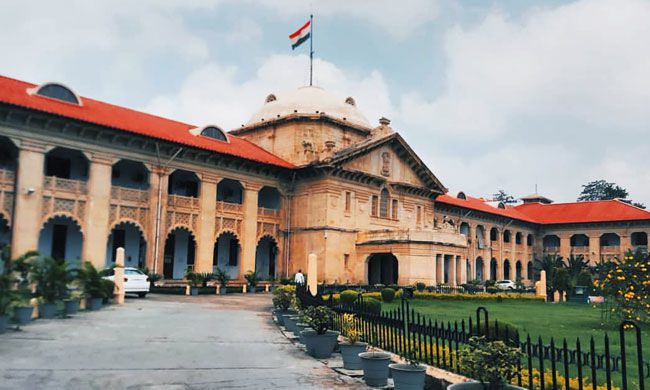Case Title: Rajni Rani vs State of U.P. and others
Case No: WRIT – A No. – 11483 of 2023
Decided on: 11.01.2024
Coram: The Hon’ble Mr. Justice Saurabh Shyam Shamshery
Facts of the Case
After reaching superannuation on June 30, 2012, one Sri Bhojraj Singh retired from his position as an assistant teacher at Maharaja Tej Singh Junior High School in Aurandh, Vikash Khand Sultanganj, District Mainpuri he passed away on February 10, 2021. The petitioner is claiming Sri Bhojraj Singh’s retirement benefits on the grounds that she was his nominee and lived with him as his wife for a considerable amount of time, as stated in the service record.
Advocates for the petitioner stated that the petitioner does not dispute that Respondent-10, Usha Devi, was Sri Bhojraj Singh’s lawfully wedded wife. She supposedly got married to someone else after divorcing him, hence she is not eligible for Sri Bhojraj Singh’s retirement payments. The learned counsel went on to say that Respondent-10 initiated a proceeding under Section 125 Cr.P.C., wherein an agreed amount was taken and a compromise was entered. Respondent-10 never claimed any maintenance allowance after that, and as a result, she has abandoned any rights she may have had.
On the other hand, the advocate for Respondent 10 contended that the respondent is in fact the legally wedded wife of Sri Bhojraj Singh and there was no divorce between them, therefore, only based on being a nominee or that the petitioner stayed with Sri Bhojraj Singh for a long time, would not sufficient to accrue all retiral benefits to her.
Issue
- Whether the petitioner as the nominee of the government employee can claim the retiral benefits?
- Whether the legally wedded wife even after having left the husband for years be entitled to his retiral benefits as a legal heir?
Legal Provision
Section 125 of the CrPC –
This code provides that any person who has sufficient means to maintain himself cannot deny the maintenance to the wife, children, and parents if they are not able to maintain themselves. After the party has invoked Section 125 of the Code, the court may order the respondent—the husband—to provide monthly maintenance to the wife in the event that she is unable to support herself. Nevertheless, the regulation contains an exemption. The husband must be able to support his wife after their divorce and the wife cannot be living in adultery or apart from her husband for an insufficient period of time in order for the husband to be entitled to maintenance payments. The wife will not be eligible for any kind of maintenance, even if they are living apart with mutual consent. In the event that the wife receives a favourable judgement, the court has make sure that the husband has sufficient means to provide maintenance to the wife. The court also needs to make sure that the wife after the separation does not have enough money to maintain herself.
Court Decision and Analysis
The court referred to the judgment passed by the apex court in Shipra Sengupta vs Mridul Sengupta and others (2009) 10 SCC 680 wherein it was held that a nominee of a Government employee is only a custodian and benefit after the employee’s death will confer to his/ her legal heirs.
The petitioner and Respondent-10 both lay claim to Bhojraj Singh’s benefits, but their legal grounds differ starkly. While the petitioner asserts some abandonment of rights based on past proceedings, it’s critical to remember, firstly, that Respondent-10 was Bhojraj Singh’s legally married wife, not the petitioner. Moreover, he never divorced her. Therefore, as per the legal precedent established in Shipra Sengupta, Respondent 10 holds a rightful claim as his heir. Viewing the nominated beneficiary merely as a temporary custodian, the law dictates benefits flow to legal heirs upon the employee’s death. Given these clear-cut facts and established legal principles, the challenged order stands on solid ground. In simpler terms, Respondent-10, as the legally wedded and undivorced wife, rightfully inherits the benefits, not the petitioner.
“PRIME LEGAL is a full-service law firm that has won a National Award and has more than 20 years of experience in an array of sectors and practice areas. Prime legal falls into the category of best law firm, best lawyer, best family lawyer, best divorce lawyer, best divorce law firm, best criminal lawyer, best criminal law firm, best consumer lawyer, best civil lawyer.”
Written by- Bhawana Bahety


